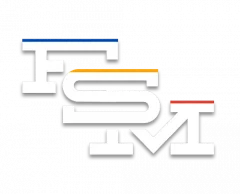The literary piece by Walter Isaacson highlights Jobs’ technological innovations and his personal life. However, there will also be paragraphs that display the Apple co-founder’s profound appreciation for rock & roll music. On this note, the book will show his opinion on musicians like Bob Dylan, Joan Baez, Bono and John Mayer.
Especially the latter seemed to have a somewhat bipolar charisma in Jobs’ eyes. While the tech visionary expressed admiration for Mayer’s guitar skills, he also thought that the artist as being “out of control” and in danger of “blowing it big time.” Rolling Stone offers a few highlights of the biography:
Get Steve Jobs’ biography for your iPhone and iPad here. Get it in hardcover here.
• Jobs and Steve Wozniak initially bonded over their mutual obsession with Bob Dylan. “The two of us would go tramping through San Jose and Berkeley and ask about Dylan bootlegs and collect them,” said Wozniak. “We’d buy brochures of Dylan lyrics and stay up late interpreting them. Dylan’s words struck chords of creative thinking.” The Dylan bootlegs they acquired were mainly on reel-to-reel tapes. “I had more than a hundred hours, including every concert on the ’65 and ’66 tour,” said Jobs. “Instead of big speakers I bought a pair of awesome headphones and would just lie in my bed and listen to that stuff for hours.”
• In 1982, Jobs was introduced to Joan Baez by her sister Mimi Farina. He was 27 and she was 41. “It turned into a serious relationship between two accidental friends who became lovers,” said Jobs. Some of his friends believed that one thing that drew Jobs to Baez was the fact that she used to date Bob Dylan. “Steve loved that connection to Dylan,” said Jobs’ college friend Elizabeth Holmes.” The relationship fizzled out when it became clear that Jobs wanted children and Baez did not.
• Jobs finally met Dylan when the singer was playing near Palo Alto in October of 2004. “We sat on the patio outside his room and talked for two hours,” said Jobs. “I was really nervous, because he was one of my heroes. And I was also afraid that he wouldn’t be really smart anymore, that he’d be a caricature of himself, like happens to a lot of people. But I was delighted. He was as sharp as a tack. He was everything I’d hoped.” They met up the next time that Dylan came through town, and Jobs told him that his favorite song was “One Too Many Mornings.” Dylan played it that night. “He’s one of my all-time heroes,” said Jobs. “My love for him has grown over the years, it’s ripened. I can’t figure out how he did it when he was so young.”
• A bootleg recording of the Beatles’ “Strawberry Fields Forever” sessions helped Jobs shape his business philosophy. “It’s a complex song, and it’s fascinating to watch the creative process as they went back and forth and finally created it over a few months,” said Jobs. “They kept sending it back to make it closer to perfect. [As he listens to the third take, he points out how the instrumentation has gotten more complex.] The way we build stuff at Apple is often this way. Even the numbers of models we’d make of a new notebook or iPod. We would start off with a version and then begin refining, doing detailed models of the design, or the buttons, or how a function operates. It’s a lot of work, but in the end it just gets better, and soon it’s like, ‘Wow, how did they do that?!? Where are the screws?'”
• Bono personally negotiated the deal to have Apple feature U2’s “Vertigo” in one of their iPod commercials. Jobs was resistant because the iPod commercials only feature silhouettes, and never recognizable people. “You have silhouettes of fans,” Bono said to him. “So couldn’t the next phase by silhouettes of artists?” Jobs relented, but in 2009 they were unable to come to a deal to feature “Get On Your Boots” in another commercial. Jobs also refused to print (APPLE) Red on the U2 iPod because he didn’t want Apple in parentheses. “But Steve, that’s how we show unity for our cause,” said Bono. The argument got heated – to the “F-you stage” – until they compromised on (Product) Red.


